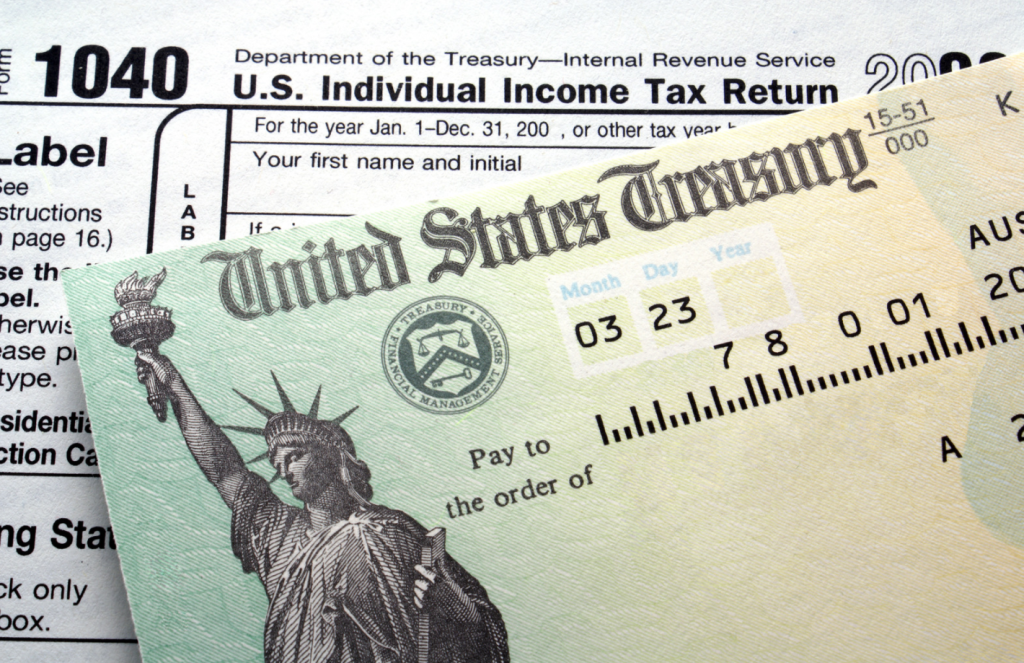Real estate investment trusts (REITs) are a popular way for individual investors to own long-term investments like real estate without the hassle of having to buy or manage properties. REITs don’t pay corporate taxes and instead distribute at least 90% of their taxable income to shareholders as dividends.
Due to their operating guidelines’ unique nature, investing in a REIT can bring some exciting tax advantages. REIT dividends have a different tax treatment. You should understand the possible tax implications are before investing.
What is a REIT?
A REIT is a company that owns, operates, and/or finances income-producing real estate and offers shares to individual investors. Essentially it’s an investment that allows investors to pool their funds and invest in institutional-quality real estate transactions that would typically be out of reach for individuals.
REITs eliminate the headaches of owning and operating income-producing real estate while providing financial returns in the form of dividends and appreciation over time.
Every REIT is a little different; they can vary based on their asset investment and how shares are traded.
Three primary asset types of REITs
The investment assets of the REIT determine this classification. REITs usually fall into one of three categories:
- Equity REITs – These trusts invest in physical real estate such as office buildings and multifamily housing. Investor income comes from rent, dividends, and capital gains from property sales.
- Mortgage REITs – These trusts invest in mortgages and mortgage-backed securities. Income for investors comes from interest on investment assets.
- Hybrid REITs – These trusts invest in a combination of physical real estate and mortgages
Different types of REITs are traded differently
Three primary REIT classifications determine how investor shares are traded, holding periods, and risk tolerances.
- Public REITs – These REITs are traded on the open market and are highly liquid. Investors can buy and sell shares generally without holding restrictions. These REITs tend to have a higher risk profile and are reflective of market volatility.
- Private REITs – Offering higher returns and requiring long holding periods than other publicly available investments, Private REITs are exclusive and are generally only to high-net-worth individuals and financial institutions.
- Public non-traded REITs (like Upside Avenue) – These REITs offer potentially higher-quality investments for individual investors. They have longer holding requirements but provide more stability and lower risk than their public counterparts. They also have relatively low minimum contribution requirements and offer alternative funding solutions such as using an after-tax retirement account such as a Roth IRA or SDIRA.
REITs don’t pay corporate taxes
When individuals invest in stocks, their investments could be subject to two different types of taxation:
- Individual taxes paid on dividends and capital gains paid when investors sell for a profit.
- Corporate taxes could be assessed on a company’s earnings before distributions are issued to shareholders.
Taxation of REITs is different from companies that issue stocks. In exchange for meeting specific operational requirements, REITs don’t pay corporate taxes. The IRS treats REITs as pass-through entities like LLCs. This is one of the most significant tax advantages of investing in a REIT.
To classify as a REIT, the company must:
- Earn at least 75% of its income from rental income or other real estate activities
- Have 75% of assets in real estate
- Have at least 100 shareholders
- Be no more than 50% owned by five or fewer individuals
- Pay at least 90% of its net income as dividends
Breaking down REIT dividend types and their taxation
REITs make three primary distributions to investors: ordinary income, capital gains, and capital return. Each distribution type handles taxation a little differently.
REIT dividends typically don’t qualify for the more desirable tax treatments reserved for stock dividends.
Here’s the general taxation breakdown for REIT dividends:
Ordinary income – Most REIT distributions qualify as ordinary income. Most distributed operating profit is an “ordinary income” dividend. REIT dividends aren’t recognized as “qualified” dividends, and they’re taxed at the investors’ marginal tax rate.
Long-term capital gains or losses – Some portion of a REIT dividend may qualify as a long-term capital gain if a REIT sells a property or portfolio asset it owned for over a year and chooses to distribute that income to shareholders. Long-term capital gains are taxed at lower rates than ordinary income and short-term gains.
Return of capital – a portion of a REIT dividend could be considered a return of investor capital, which isn’t immediately taxable. Return of capital lowers the original value of an investor’s asset, so an investor wouldn’t be taxed on the distribution but may experience increases in capital gains when selling REIT shares.
Types of REIT tax advantages
Even though taxation can be a little complicated, REITs still hold several distinct advantages over other types of long-term investments.
REIT pass-through deduction
With the passage of the Tax Cuts and Jobs Act of 2017, REITs may qualify for a pass-through tax deduction. This deduction allows taxpayers with pass-through income to deduct 20% of this amount from their taxable income, and REIT dividends taxed as “ordinary income” may qualify.
The deduction expires in 2025, so now is the time to take advantage of this deduction if you qualify.
No double taxation
Because REITs don’t pay corporate taxes, they avoid the “double taxation” combination of corporate and income taxes. REIT investors are sheltered and only taxed once.
Depreciation
Depreciation allows some deferment of taxes. The greater the rate of depreciation expenses, the more likely the taxable portion of REIT dividends will decrease by reclassifying some dividends from “ordinary income” to “return of capital.” This reclassification lowers the overall rate of taxation for those dividends.
The IRA bonus buffer
If you own a REIT funded by an IRA, you won’t have to worry about dividend taxes each year or pay taxes in the year the REIT profitably sells shares. As long as your withdrawals meet IRS requirements, you’ll never pay taxes.
REITs offer investors unique tax advantages that can provide a steady stream of passive income but should anticipate some small tax complications when it comes to dividends.
Every investor’s tax situation is different, and consulting with a tax professional to help determine which type of long-term real estate investment is right for them and how they will impact their tax obligations is always good advice.
About Upside Avenue
For decades, the ultra-wealthy and financial institutions have been putting their money to work in real estate—now with Upside Avenue, you can too. We provide access to a professionally managed, diversified portfolio of income-producing multifamily real estate for as little as $2,000. Learn more about the Upside Avenue Multifamily REIT with targeted returns of 10-15% IRR.


